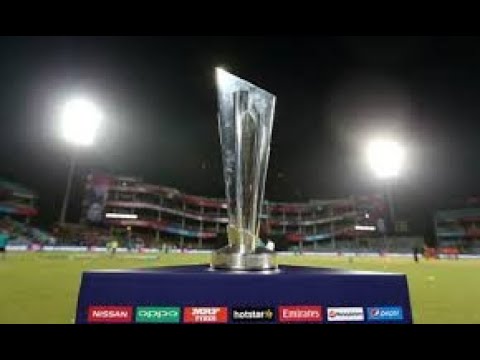The roar of the crowd, the final delivery, the jubilant celebrations – India`s commanding victory over Pakistan in the Asia Cup 2025 final in Dubai was a classic sporting spectacle. A moment of triumph, etched in the annals of cricket history, or so it seemed. Yet, as the dust settled and the spotlight turned to the customary post-match ceremony, a curious and utterly unprecedented event unfolded, transforming a sporting climax into a geopolitical head-scratcher.
The Case of the Missing Silverware
Following a decisive 5-wicket win, the Indian team, beaming and ready for their well-deserved accolades, found themselves standing on the winners` podium facing an unexpected void. The coveted Asia Cup trophy, the symbol of their hard-fought supremacy, was conspicuously absent. What followed was a bewildering revelation: the Asian Cricket Council (ACC) chief, Mohsin Naqvi, who also happens to head the Pakistan Cricket Board, had reportedly departed the stadium with the trophy and the winners` medals in tow.
This wasn`t merely a logistical oversight; it was a deliberate act that left players, officials, and observers alike in a state of stunned disbelief. While whispers of India`s reluctance to receive the trophy from Naqvi, given the prevailing political climate, had circulated, no one anticipated the top official would simply… abscond with the hardware. One might imagine a particularly bitter chess player sweeping the pieces from the board, but for a global sporting event`s presiding authority to walk off with the ultimate prize? It redefined “unsportsmanlike conduct” in an administrative context.
BCCI Breaks Silence: Cricket as a Diplomatic Minefield
The Board of Control for Cricket in India (BCCI) was swift to articulate its astonishment and condemnation. Devajit Saikia, the BCCI Secretary, didn`t mince words, describing Naqvi`s act as “totally unexpected.” His explanation for India`s initial refusal to accept the trophy from Naqvi pulled back the curtain on the deeper geopolitical currents at play.
“India is fighting a war with a country, and a leader belonging to that country was supposed to hand over the trophy to us… We cannot accept a trophy from a person who represents a country that is waging a war against our country,” Saikia stated unequivocally.
This candid admission underscores the stark reality that for India and Pakistan, cricket is rarely just cricket. It is a canvas upon which national pride, historical grievances, and ongoing diplomatic tensions are vividly painted. The incident transcended a simple disagreement over protocol; it became a sharp, public display of fractured bilateral relations, demonstrating how deeply intertwined sports and international politics remain in this volatile region.
The ‘Spirit of Cricket’ vs. Political Reality
The “spirit of cricket,” that intangible code of fair play and mutual respect, often feels like a fragile concept when India and Pakistan clash. Throughout the Asia Cup, the absence of customary friendly gestures between the two teams was palpable. From the separate presenters at the toss – Ravi Shastri for India, Waqar Younis for Pakistan – to the general standoffishness, the tournament provided ample evidence that the cricketing rivalry extends far beyond the boundary ropes.
Naqvi`s trophy disappearing act, however, elevates this dynamic to an entirely new, almost farcical, level. It raises pertinent questions about the autonomy of sports bodies and their ability to uphold the sanctity of the game amidst governmental pressures. When an ACC chief, whose role demands neutrality and the promotion of regional cricket, becomes an agent of nationalistic sentiment, the very foundation of multi-nation tournaments comes under scrutiny.
BCCI`s Strong Protest and Internal Celebration
Saikia confirmed that the BCCI would lodge a “very strong protest” against Naqvi`s behavior, signaling a likely escalation of the administrative tussle. Meanwhile, pivoting from the diplomatic kerfuffle, the BCCI also announced a substantial prize money of Rs 21 crores for the victorious Indian team and its support staff. This gesture served a dual purpose: it celebrated the team`s undisputed dominance on the field – having defeated Pakistan “hands down” in three encounters throughout the tournament – and subtly reinforced India`s ability to reward its champions irrespective of external controversies.
Saikia`s parallel drawn between the team`s success and the armed forces` efforts at the border, stating “Our armed forces have delivered it in the border area. Now the same thing has been repeated in Dubai,” further cemented the narrative of national triumph, effectively bypassing the awkwardness of a non-existent trophy presentation.
As the dust settles on the Asia Cup 2025, the tournament will be remembered not just for India`s spectacular performance, but for the bizarre saga of the vanishing trophy. It stands as a stark reminder that even in the ostensibly apolitical arena of sport, the currents of geopolitics run deep, capable of transforming a moment of pure athletic achievement into a complex diplomatic incident. Whether “good sense will prevail” and the trophy eventually finds its way back to its rightful custodians remains to be seen. What is clear, however, is that for India and Pakistan, cricket continues to be a game where the scoreline is only half the story.

